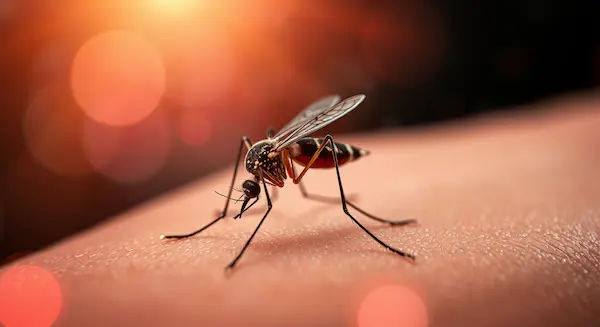Guide to Child Development: Milestones and What to Expect
Learn what to expect in physical, cognitive, social, and language growth, and get practical tips to support your child’s healthy development.

Written by Dr. Dhankecha Mayank Dineshbhai
Reviewed by Dr. Md Yusuf Shareef MBBS
Last updated on 13th Jan, 2026

Introduction
Watching a child grow is one of life's most remarkable journeys. From a helpless newborn to a curious toddler and a chatty preschooler, each stage of child development brings new wonders and challenges. But with so much information available, it's easy to feel overwhelmed. Is my baby on track? When should they start talking? What can I do to help? This comprehensive guide is designed to demystify the process. We'll walk you through the key areas of development, outline what to expect from birth to age five, and offer practical tips to support your child's growth every step of the way. Remember, every child is unique, but understanding the general roadmap of child development can empower you to be the best support system possible.
What is Child Development? Understanding the Four Key Areas
Child development is the predictable sequence of physical, language, cognitive, and emotional changes that occur from birth to the end of adolescence. It’s a continuous process, but experts typically break it down into interconnected domains. Think of these areas as different threads woven together to create the whole tapestry of your child's growth.
Physical Development: More Than Just Growth
This area encompasses both gross motor skills (large movements like crawling, walking, and jumping) and fine motor skills (smaller, precise movements like grasping a rattle, scribbling with a crayon, or using a spoon). It's about the incredible transformation in a child's body size, strength, and coordination. For example, in the first year, a baby progresses from reflexive movements to purposefully reaching for and manipulating objects, a key fine motor skill milestone.
Cognitive Development: Building a Thinking Mind
This is all about how children think, explore, and figure things out. It includes skills like learning, attention, memory, language, reasoning, and creativity. According to renowned psychologist Jean Piaget, children are like little scientists, constantly forming hypotheses and testing them through play. A toddler repeatedly dropping a spoon from their highchair isn't difficult; they're conducting a fascinating experiment in gravity—a classic sign of cognitive development.
Social and Emotional Development: Forming Connections
This domain focuses on a child's experience, expression, and management of emotions, and their ability to form positive relationships. It starts with the vital bond of attachment with parents and caregivers and expands to include understanding their own feelings and those of others (empathy), playing cooperatively, and building self-confidence. A preschooler learning to take turns or comfort a crying friend is hitting crucial social-emotional milestones.
Language and Communication Development: Finding a Voice
This involves both receptive language (understanding words and sounds) and expressive language (speaking). It begins with cooing and babbling, moves to first words, and eventually blossoms into complex sentences and storytelling. Language acquisition is deeply tied to cognitive and social development; as a child's brain grows, so does their ability to communicate their thoughts and needs to the world.
Consult a Paediatrician for the best advice
A Stage-by-Stage Guide to Developmental Milestones
Milestones are skills or behaviours that most children can do by a certain age. They serve as helpful checkpoints, but it's crucial to remember that there's a wide range of what's considered normal. Use this as a guide, not a strict timetable.
Newborn to 3 Months: The Fourth Trimester
In these first months, your baby is adjusting to the world outside the womb. During this stage, babies typically reach the following milestones:
- Physical: Can lift head briefly during tummy time, moves arms and legs symmetrically, hands are often fisted.
- Cognitive: Starts to track objects with eyes, recognises familiar faces and sounds.
- Social/Emotional: Begins to develop a social smile, calms down when spoken to or held.
- Language: Communicates through crying, starts to coo and make gurgling sounds.
4 to 6 Months: Discovering the World
Your baby becomes more interactive and alert. At this stage, your baby is likely to reach the following milestones:
- Physical: Rolls over from front to back and back to front, supports upper body with arms during tummy time, begins to reach for and grasp toys.
- Cognitive: Brings objects to mouth, shows curiosity, responds to affection.
- Social/Emotional: Enjoys playing with others, may cry when play stops, recognises familiar people.
- Language: Babbles chains of consonants ("ba-ba-ba"), laughs and squeals, responds to sounds by making sounds.
7 to 12 Months: On the Move and Making Sounds
This is a period of rapid motor development and the beginnings of communication. During this stage, babies usually reach these important milestones:
- Physical: Sits without support, crawls, pulls to stand, may start cruising along furniture. Develops a pincer grasp (picking up small items between thumb and forefinger).
- Cognitive: Understands object permanence (that things exist even when out of sight), explores objects in different ways (shaking, banging, throwing).
- Social/Emotional: May be shy or anxious with strangers, has favorite toys, imitates gestures.
Language: Understands "no," says "mama" or "dada" with meaning, tries to imitate words.
1 to 2 Years (Toddler): The Adventurous Explorer
Independence is the name of the game during this exciting and often challenging stage. This stage is full of growth and exploration, with toddlers typically reaching these key milestones:
- Physical: Walks alone, can run, climbs onto furniture, scribbles spontaneously, may start using a spoon.
- Cognitive: Finds hidden objects, follows simple one-step instructions, begins pretend play (e.g., feeding a doll).
- Social/Emotional: Demonstrates defiant behaviour, recognises themselves in a mirror, plays mainly alongside other children (parallel play).
- Language: Says several single words, points to objects when named, can follow a simple command.
3 to 5 Years (Preschool): Imagination and Independence
Your child's personality is in full bloom, with a growing vocabulary and social circle. The preschoolers typically develop these key skills and abilities:
- Physical: Climbs well, pedals a tricycle, runs easily, draws circles and squares, can use scissors.
- Cognitive: Does simple puzzles, understands the concept of "same" and "different," engages in more complex pretend play.
- Social/Emotional: Interested in new experiences, cooperates with other children, shows a wide range of emotions, can take turns.
- Language: Speaks in multi-word sentences, tells stories, can say name, age, and sex, strangers can understand most of their speech.
Supporting Your Child's Healthy Development
While genetics play a role, a nurturing environment is the cornerstone of healthy child development.
The Power of Play: It's How Children Learn
Play is not a break from learning; it is learning. Unstructured play fosters creativity, problem-solving skills, and physical strength. Get down on the floor and build a block tower, have a dance party, or read a book together. These simple interactions are more valuable than any flashcard.
Nutrition's Role in Brain and Body Growth
A balanced diet rich in fruits, vegetables, whole grains, and lean proteins provides the essential building blocks for a growing brain and body. If you have concerns about your child's eating habits or growth, consulting a paediatrician can provide peace of mind. Apollo24|7 allows you to easily book a consultation with a child nutrition specialist online to discuss your concerns.
Creating a Nurturing and Stimulating Environment
The most important thing you can provide is a safe, loving, and responsive environment. Talk, read, and sing to your child from day one. Respond to their cries and babbles—this builds trust and security, which is the foundation for all other areas of development.
When to Be Concerned: Recognising Developmental Red Flags
It's normal to worry, but it's also important to know when to seek guidance. While children develop at their own pace, talk to your doctor if you notice any of the following by the indicated age:
- By 6 months: Doesn't try to grasp objects, shows no affection for caregivers, doesn't respond to sounds.
- By 12 months: Doesn't crawl, can't stand when supported, says no single words like "mama" or "dada."
- By 18 months: Doesn't point to communicate, doesn't walk, loses skills they once had.
- By 2 years: Can't use two-word phrases (e.g., "drink milk"), doesn't imitate actions, doesn't follow simple instructions.
Early intervention is key. If you observe persistent delays or regression in any area of development, don't wait. Consult a doctor online with Apollo24|7 for an initial assessment and guidance on the next steps. They can help determine if a referral to a specialist is needed.
Conclusion
Navigating the stages of child development is an incredible adventure filled with moments of joy, discovery, and learning—for both you and your child. By understanding the general milestones and focusing on providing a rich, nurturing environment full of love, play, and conversation, you are giving your child the best possible start in life. The journey isn't about pushing your child to meet every milestone early but about supporting them with patience and awareness as they grow at their own perfect pace. Celebrate the small victories, read the cues your child gives you, and remember that you are your child's first and most important teacher. If ever in doubt about your child's progress, your paediatrician is your greatest ally.
Consult a Paediatrician for the best advice
Consult a Paediatrician for the best advice

Dr Yaja Jebaying
Paediatric Gastroenterologist
9 Years • MBBS, MD PEDIATRICS, FELLOWSHIP PEDIATRIC GASTROENTEROLOGY AND HEPATOLOGY AND LIVER TRANSPLANTATION
Delhi
Apollo Hospitals Indraprastha, Delhi
(25+ Patients)

Dr. Rajesh Jha
Paediatrician
10 Years • M.B.B.S., D.N.B.(Pediatrics)
Noida
Apollo Hospitals Sector 26, Noida
(50+ Patients)

Dr. Dikpati Mukherjee
Paediatrician
12 Years • MBBS, MD (Paed.)
Kolkata
MCR SUPER SPECIALITY POLY CLINIC & PATHOLOGY, Kolkata

Dr Indranil Karmakar
Paediatrician
5 Years • MBBS,DNB PAEDIATRICIAN
Kolkata
Dr Indranil Karmakar Clinic, Kolkata

Dr. Saurabh Sharma
Paediatrician
15 Years • MBBS, MD Paediatrics
Pune
Blooming Tads, Pune
(75+ Patients)
Consult a Paediatrician for the best advice

Dr Yaja Jebaying
Paediatric Gastroenterologist
9 Years • MBBS, MD PEDIATRICS, FELLOWSHIP PEDIATRIC GASTROENTEROLOGY AND HEPATOLOGY AND LIVER TRANSPLANTATION
Delhi
Apollo Hospitals Indraprastha, Delhi
(25+ Patients)

Dr. Rajesh Jha
Paediatrician
10 Years • M.B.B.S., D.N.B.(Pediatrics)
Noida
Apollo Hospitals Sector 26, Noida
(50+ Patients)

Dr. Dikpati Mukherjee
Paediatrician
12 Years • MBBS, MD (Paed.)
Kolkata
MCR SUPER SPECIALITY POLY CLINIC & PATHOLOGY, Kolkata

Dr Indranil Karmakar
Paediatrician
5 Years • MBBS,DNB PAEDIATRICIAN
Kolkata
Dr Indranil Karmakar Clinic, Kolkata

Dr. Saurabh Sharma
Paediatrician
15 Years • MBBS, MD Paediatrics
Pune
Blooming Tads, Pune
(75+ Patients)
More articles from General Medical Consultation
Frequently Asked Questions
What is the most important age for child development?
While all stages are crucial, the first five years are often considered the most critical because the brain develops more rapidly than at any other time. Early experiences lay the foundation for future learning, behaviour, and health.
My 18-month-old isn't talking yet. Should I be worried?
While some children are 'late talkers,' it's a good idea to discuss this with your paediatrician. They can check your child's hearing and overall language skills. Early intervention for speech delays can be very effective, so it's best not to adopt a 'wait and see' approach.
How can I encourage my toddler's social development?
Arrange playdates, even if it's mostly parallel play. Model sharing and taking turns. Read books about emotions and talk about feelings. Praise positive social interactions.
Is screen time harmful to a child's development?
The American Academy of Paediatrics recommends avoiding screen time (other than video-chatting) for children under 18 months and limiting it to high-quality programming for older children, with a focus on co-viewing. Excessive screen time can displace vital activities like play, conversation, and sleep.
What are the signs of a cognitive developmental delay?
Signs can include a lack of curiosity, difficulty solving simple problems appropriate for their age (e.g., stacking rings), trouble with memory, and significant challenges with communication and language. If you have concerns, a developmental screening by a paediatrician is the best course of action.




